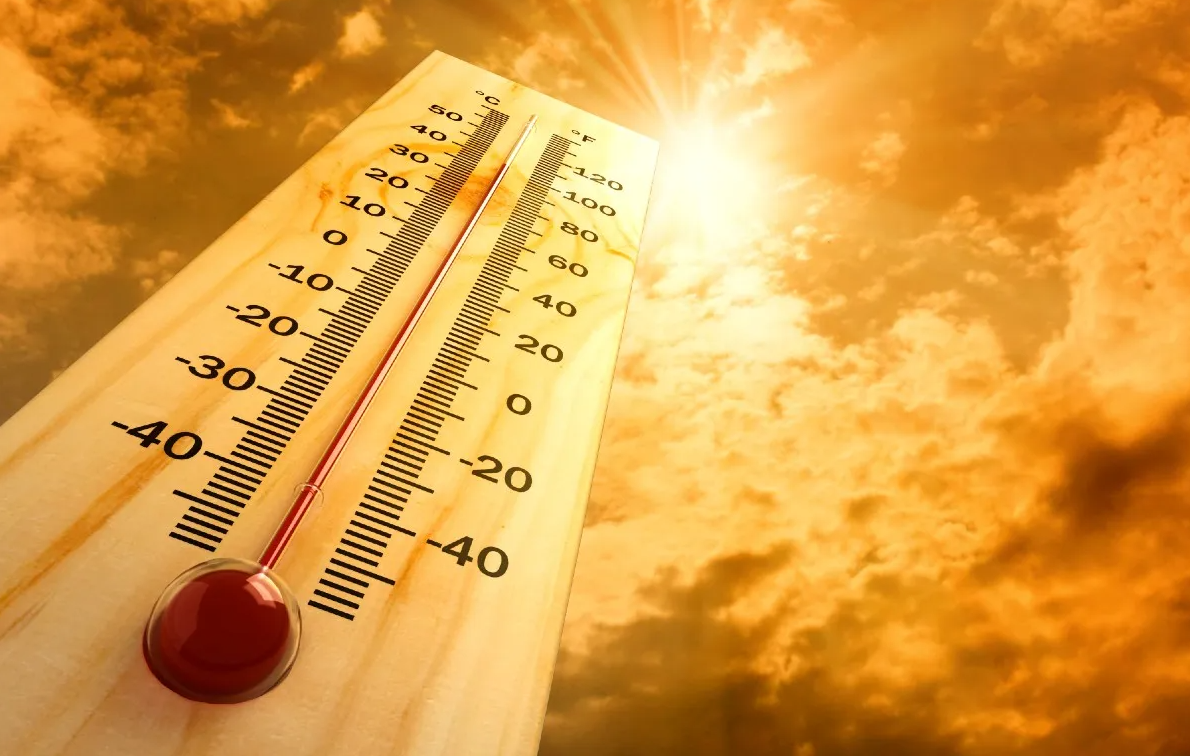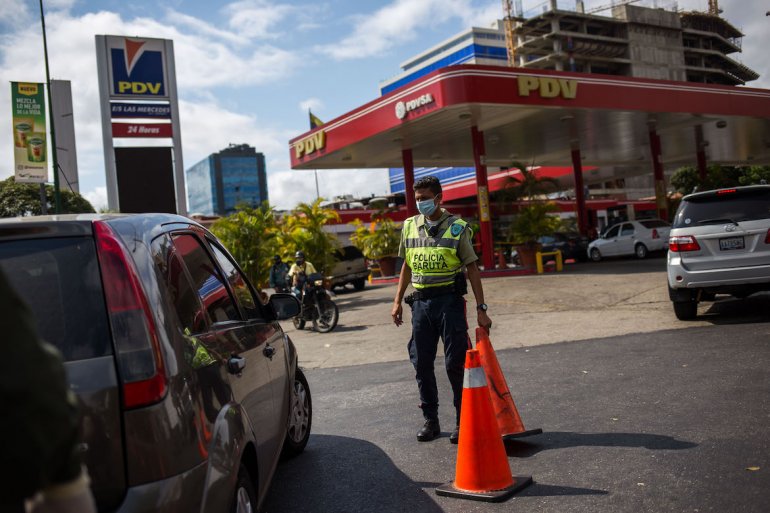A human-rights-based analysis of the recent “bill on Fascism, Neo-fascism and equivalent expressions” being discussed at Venezuela’s National Assembly was carried out by Laboratorio de Paz, a local think tank focusing on Peace and nonviolent conflict resolution
Early March, Venezuela’s vice-president Delcy Rodríguez announced on X that “President Maduro has decided to create a High State Commission against Fascism and all neo-fascist expression in the exercise of politics and national life.” In her message, the vice president revealed without unambiguity the objectives of the legislation: a) Individuals involved in the protests of 2014, 2015 and 2017; b) Sectors and actors associated with the opposition-controlled National Assembly of 2015; c) Sectors and actors associated with the United States government: “neo-fascist expressions festering in centers of power serving the global north.” Ms. Rodríguez reaffirmed these intentions during the introduction of the bill to the National Assembly: “Stopping fascism in the world is a task that cannot be postponed for the good of humanity, because it is not only manifested in expressions of hatred, violence and death but also in forms of economic fascism, such as the criminal blockade imposed against Venezuela.”
Although the media have reported that the bill has been promoted by order of Maduro himself, he still has not commented on the proposed piece of legislation. His most recent mention of “fascism” took place in January 2024: “If one day fascism were to cause me any harm or attack, I leave in your hands whatever you have to do to restore Peace and Justice! If necessary, activate the Bolivarian Fury!.” Other officials have referred to the bill. In March, Jorge Rodríguez expressed that “we have approved the first discussion of the Bill on Fascism with the aim of punishing, under the laws of the Republic, those who commit the serious crime of discriminating against others because of their skin color, choice of gender or political ideology.” In January, the Defense Minister, Vladimir Padrino López, had expressed: “The political stability, economic recovery and peace that Venezuela is experiencing must be cared for with wisdom, zeal and determination. Today, when a subversive faction intends to bring back hatred and violence, the State must protect itself morally and institutionally against fascism and neo-fascism. You can count on the Armed Forces in this task!” The Minister of Communication, Freddy Ñañez, has referred several times to the bill: “Stopping the expansion and legitimization of fascism in the world is an ineluctable responsibility of humanity. And the main task of democratic countries today is to unmask the new forms that fascism and Nazism have adopted, to combat them in the field of culture, communication, education, politics and laws.”; “What do those who oppose a law against fascism defend? The ‘right’ to discriminate, abuse, persecute, lie, stigmatize and suppress others due to their ethnic, national, social, cultural, political, or sexual differences; there is no such thing! Supremacy is a delusion, not a right!”.
Strictly speaking, there are no far-right, pro-Nazi or radical nationalist movements in Venezuela that justify the promulgation of a law contemplating crimes under that ideology. The statements of Venezuelan government officials show that they seek to retroactively punish conduct that occurred before the approval of the law. The bill is made up of 30 articles grouped into 4 chapters. The penalties contemplate imprisonment of 8 to 12 years for anyone who carries out “fascist acts”; imprisonment of 6 to 10 years for anyone who “supports or promotes the principles, facts and methods of fascism”; a fine of 50,000 to 100,000 euros to natural or legal parties “who finance or support with material resources those who advocate or follow the methods of fascism…”. TV and radio stations violating the regulation will be sanctioned with “the revocation of the concession”, and or a fine of 50,000 to 100,000 euros in the case of the press or digital media.
The Bill on Fascism, Neo-fascism and equivalent expressions:
1) Establishes vague definitions of arbitrary interpretation: According to Article 4, the characteristics of “fascism” are racism, chauvinism, classism, moral conservatism, neoliberalism, misogyny and all types of phobia against human beings and their right to non-discrimination and diversity.” By “neo-fascism and equivalent expressions” the legislator understands “any ideological position or expression, regardless of its name, that totally or partially reproduces the foundations, principles, purposes, methods and features of fascism.” Under these assumptions, any expression of opposition can be qualified as such.
2) Constitutes an instrument for censorship and a major restriction of freedom of expression and information: Three articles of the text will promote an increase in the censorship and self-censorship of the media, journalists and citizens in general. Article 9 on the role of the media contemplates that “the messages disseminated (…) must be educational in nature and contribute to protecting society from any expression of a fascist, neo-fascist or similar nature”. According to Article 10 on the “culture of hate, intolerance and death”, “No person (…) may promote, encourage, facilitate, execute or tolerate actions or omissions that favor or reproduce the culture of hatred, intolerance, discrimination and death…”. Article 11 on the prohibition of fascist messages: “The media must guarantee spaces free of any message of a fascist, neo-fascist or similar nature.” The prohibited messages are detailed as follows: a) Endorsement or promotion of violence as a method of political action, b) Messages that favor or reproduce the culture of hate, intolerance, discrimination and death, c) The despise for democracy, democratic institutions and republican values, d) The promotion of the suppression of the rights and guarantees of the Constitution in favor of certain sectors of society and e) the promotion or defense of the principles, facts, symbols and methods of fascism. These alleged crimes will further increase the climate of censorship and self-censorship that prevails in Venezuela.
3) Represents an instrument for the further closure of Civic Space: In addition to the exercise of the right to freedom of expression and information, other articles further restrict other elements of civic space. Article 12 prohibits “public gatherings and demonstrations convened for the purpose of promoting or endorsing fascism, neo-fascism and equivalent expressions.” The authorities shall take “preventive measures aimed at preventing or -when appropriate- dissolving public gathering and demonstrations…”. Article 13 prohibits organizations having in their “constitutive acts, declaration of principles, political action programs, statutes or activities the promotion, advocacy or endorsement of fascism, neo-fascism and similar expressions.” Article 14 orders the dissolution of social organizations “that promote, defend or are based on fascism, neo-fascism and similar expressions.” Article 15 orders the annulment of the registration before the National Electoral Council (CNE) of political organizations “whose articles of incorporation, declarations of principles, political action programs, statutes or activities promote, endorse or follow the practices of fascism, neo-fascism and similar expressions.” The bill adds that the CNE “may declare the preventive suspension of organizations with political purposes from the beginning of a procedure and through a motivated act.” This objective is reinforced in Article 16 on the dissolution of organizations with political purposes, where the Constitutional Chamber of the Supreme Court (TSJ) “may agree to the dissolution of an organization with political purposes that promotes, endorses or follows the ideas fascism…” The Public Ministry shall present such a request to the TSJ. Finally, Article 17 prohibits access to public office for anyone who “at any time before the election or their access to public office has adopted a conduct that directly promotes or advocates fascism…”. The passing of this bill will completely close civic space in Venezuela.
The purpose of the bill
In Venezuela, there is the precedent of a Law whose arbitrary application exceeds what is formally established in its text to become an instrument of political persecution, the Constitutional Law on Hate, Peaceful Coexistence and Tolerance. The Bill on Fascism, Neo-fascism and equivalent expressions, under discussion in the context of the upcoming presidential elections, intends to criminalize and punish conduct that took place before its approval. The bill seeks to criminalize sectors and actors both before and after the electoral event. Protecting the “democratic exercise of the people’s will” is a term that appears 11 times in the text of the bill. Therefore, any objection to the results of the vote could be classified as “fascism” and be sanctioned under this Law.
The “bill against fascism” will institutionalize persecution for ideological reasons and eliminate political plurality in the country. The criminalization of subjective elements such as “moral conservatism” or the criminalization of an ideology -neoliberalism- is contrary to the social state of justice and law established in the 1999 Constitution.
The passing or repeal of this regulation may become an additional element at the negotiation table, or in any other space of controversy between the democratic champ and the government.
The classification of the demonstrations that occurred in the country during the years 2014, 2015 and 2017 under the label of “fascism” would justify the systematic violation of human rights that occurred during that period, leveling victims and perpetrators from an institutional point of view and undermining the investigation of crimes against in humanity at the International Criminal Court.
Finally, promoting regulations of this nature, even if the bill fails to pass, generates an effect of inhibition among social and political actors, as well as organizations. If passed, it would become an example of how a punitive law can bring consequences even without being ever applied to anyone.
Recommendations
The approval of the bill on fascism, neo-fascism and equivalent expressions would mean one more step in the construction of a totalitarian model of government in Venezuela, further reducing the guarantees for the enjoyment of the population’s human rights and the possibility of paving the way for a transition to democracy. The international community, especially the international human rights bodies, must carry out all necessary diplomatic efforts to avoid the approval of the bill. The possible application of this law in the context of presidential elections strains the limits of the Barbados Agreement and will create additional obstacles to the holding of free and credible elections in Venezuela.
Translated by José Rafael Medina




